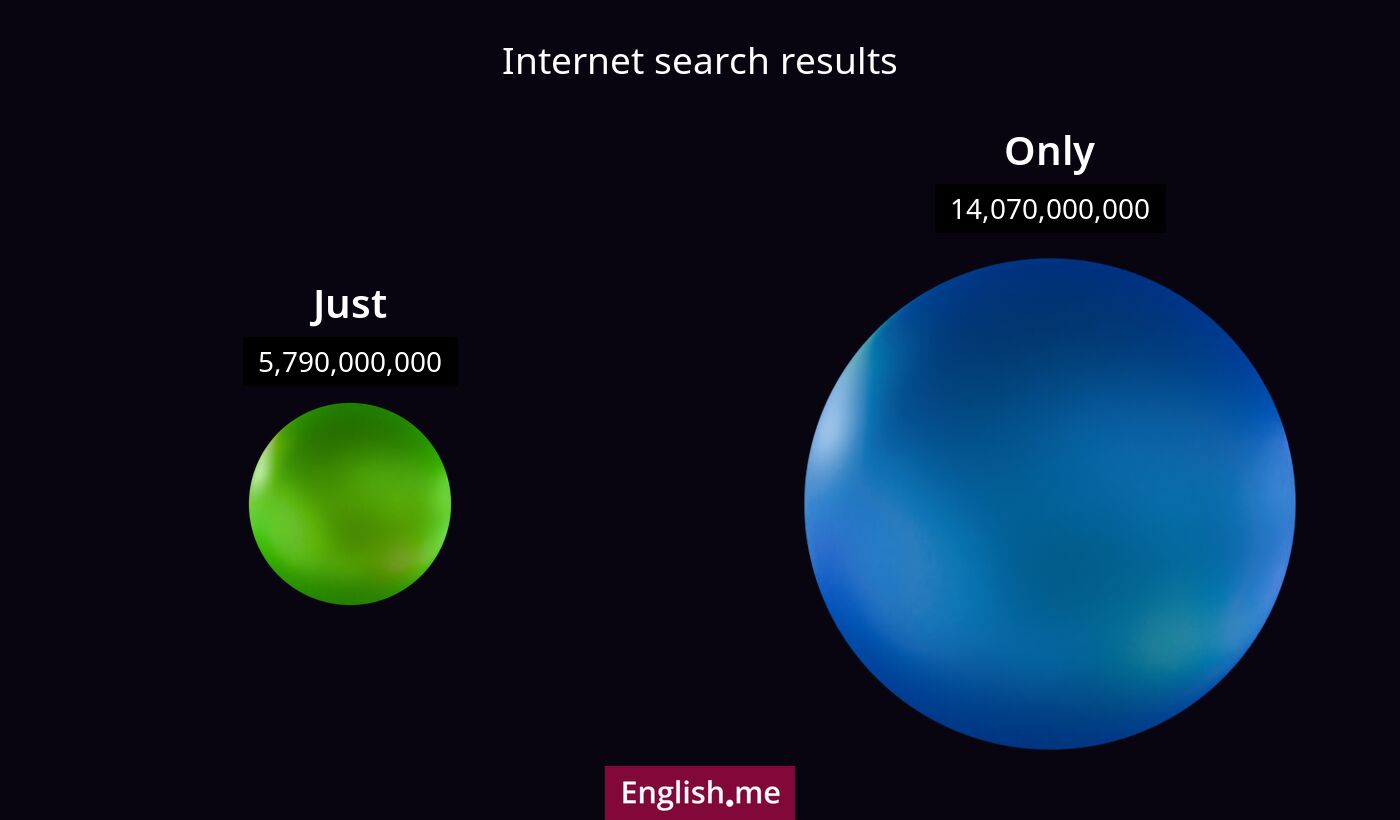"Just" vs. "only": how they're alike and what sets them apart
Reviewed and edited by  Anwar Kareem 06/12/2024, 11:19
Anwar Kareem 06/12/2024, 11:19
English.me team member

 What is similar?
What is similar?
Both "just" and "only" are adverbs that can be used to limit or restrict the scope of a sentence, emphasizing exclusivity or precision. Both words often convey the idea of something being limited in extent or happening recently.
 What is different?
What is different?
The word "just" often carries additional meanings such as fairness (e.g., justice), recency (e.g., something that happened a short time ago), or exactness, while "only" is more focused on exclusivity and limitations.
 Which one is more common?
Which one is more common?

 Examples of usage
Examples of usage
Just- She just left the house.
- I just need five more minutes.
- This decision is just and fair.
- This offer is available only to members.
- She eats only vegetarian food.
- I have only one request.

 English
English español
español française
française italiano
italiano deutsche
deutsche 日本語
日本語 polski
polski česky
česky svenska
svenska Türkçe
Türkçe Nederlands
Nederlands